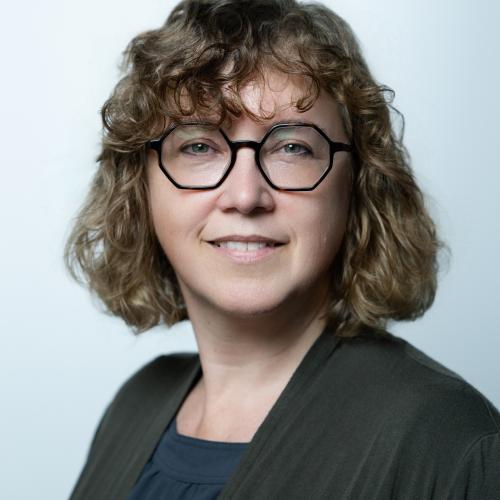iSchool Research Scientist Ian Brooks and Associate Professor Kate McDowell are leading an international effort to combat health infodemics, such as that which arose following the COVID-19 pandemic.
"Infodemic" is defined as "an excessive amount of information about a problem that is typically unreliable, spreads rapidly, and makes a solution more difficult to achieve." Many in society who refused to take the COVID vaccine made their decisions based on misleading or inaccurate information, said Brooks, who directs the iSchool's Center for Health Informatics. "A good response to a pandemic needs good information shared from public health officials. When that message is confused and diluted it affects the public health response."
To counteract the infodemic, the Pan American Health Organization—the Americas’ regional division of the World Health Organization (WHO)—initiated the Anti-Infodemic Virtual Center for the Americas (AIVCA). AIVCA's goal is to develop a set of computer tools that pair artificial intelligence (AI) with human judgment to help ministries of health and related health institutions respond to infodemics.
The virtual center proposes creating a detection team that will use advanced search queries, machine learning, and AI to sift through more than 800 million public social media posts daily to identify emerging infodemic threats. Brooks will be leading the development of the detection tools.
Once a threat is detected, evidence then will be gathered to identify the most relevant authoritative sources to address the questionable information. Finally, a team will recommend effective responses for health officials to use to educate the public about the misinformation. McDowell will be involved in the storytelling part of the virtual center's efforts.
Brooks will discuss AIVCA's mission and development at an upcoming workshop hosted by the National Academies of Sciences, Engineering, and Medicine. The two-day public workshop, "Navigating Infodemics and Maintaining Trust during Public Health Emergencies," will be held virtually on April 10-11.
Misinformation about handling health risks is not a new phenomenon—smallpox vaccines were demonized as early as the 1800s, and more recently, vaccines were incorrectly linked to autism. But the prevalence and reach of social media coexisting simultaneously with the rise of COVID amplified the dangers of the infodemic.
According to Brooks, simply fact-checking misleading or bad information is not enough, as those who want to spread it may counteract and muddy the waters further. In addition, efforts to sort all this out and present real information is a challenge.
"Misinformation may come from well-meaning people who are sharing anecdotes that may be true but misinterpreted," he said. "There also may be people who are deliberately trying to sow misinformation and do harm. Some may just want to try to cause instability because it helps their agenda. We need to figure out how to tell people what the truth is behind this misinformation in a way that they will understand and accept what we are saying."
While AIVCA is designed to address infodemics on health issues, it is possible that the model could be used to address infodemics in other areas as well.
WHO's Strategic Fund provided $120,000 for AIVCA to prove the feasibility of the center's concept. Those working with iSchool faculty include researchers from Grainger Engineering Library and the Department of Sociology at the University of Illinois as well as PAHO staff and consultants from Argentina, Mexico, Brazil and Colombia.
Brooks' research interests include public and global health informatics, epidemiology, cyberinfrastrure, data analytics, and One Health. He holds a PhD in biochemistry from Bryn Mawr College, MS in applied and engineering physics from Cornell University, and BSc in biophysics from the University of York in England.
McDowell researches and publishes in the areas of storytelling at work, social justice storytelling, and what library storytelling can teach the information sciences about data storytelling. She holds both an MS and PhD in library and information science from Illinois.

